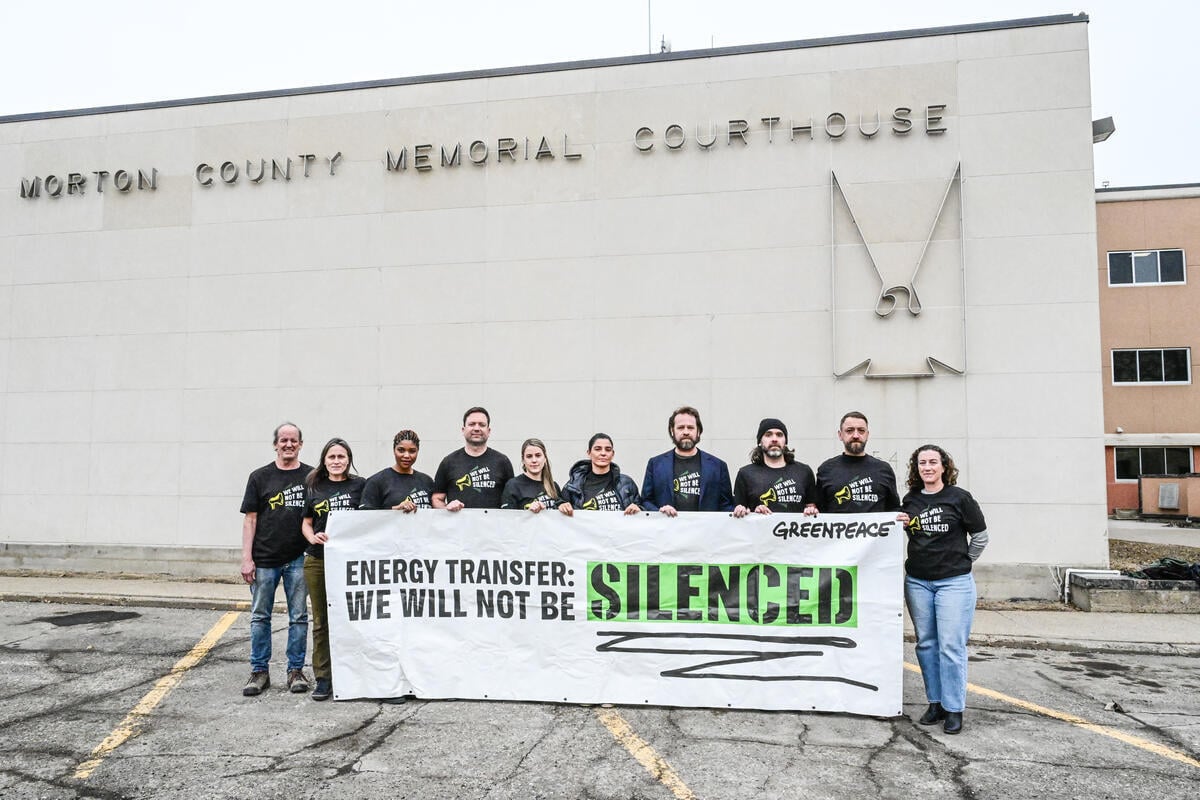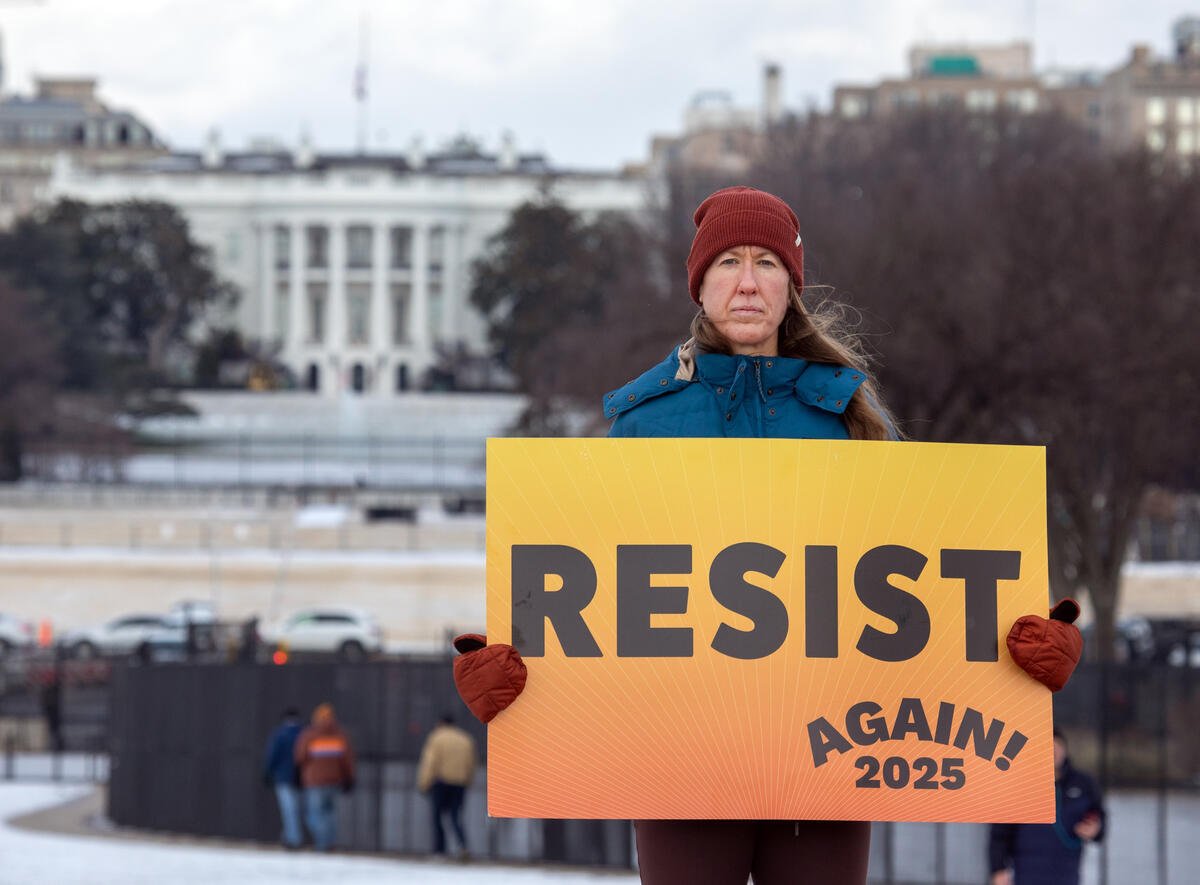Major oil and gas player Energy Transfer has a lot to gain from a second Trump presidency at the expense of ordinary people.

The co-founder and chairman of Energy Transfer (ET) Kelcy Warren and former president Donald Trump have a history of mutually enabling each other’s agenda. Warren, an oil and gas oligarch with a history of attempting to squash critics, and Trump, the former president who tried to overthrow a democratic election, have a lot in common. The pair have a long standing alliance built by campaign donations, favorable policies and deregulations, and a shared interest in “legal warfare”. In Trump’s most recent bid for the US presidency, he has explicitly promised oil tycoons that he will move the federal government in their favor so long as they financially back his campaign. They have been happy to oblige.
Gains: Environmental Deregulation
Trump has promised to roll back many of Biden’s environmental policies and actions on clean energy and climate. Trump also made promises to revive offshore drilling, expedite permit approvals for fossil fuel infrastructure and operations, and deregulate the environmental standards and reviews fossil fuel corporations have to abide by – in exchange for the billionaires’ donations.
Warren and other oil barons are positioning themselves to cash in on Trump’s offer. Many of the pledged changes would be particularly valuable to ET – and to Warren, ET’s largest shareholder – allowing them to expand infrastructure, pursue more contracts, and increase profits.
What do Warren and Energy Transfer have to gain from a future Trump presidency? Based on Trump’s past actions and promises for the future, we might expect a future Trump administration to:
- End the pause on LNG permit approvals and accelerate LNG permitting, which could expedite the Lake Charles LNG terminal permit approval ET is seeking. Trump called ending the pause a Day One priority if he returns to office.
- Drive Department of Transportation approvals for ET’s Blue Marlin deepwater export terminal, especially given Trump’s ongoing “drill, baby, drill” energy approach.
- In 2017, Trump ordered the approval of the DAPL by giving the Army Corps agency to proceed without an environmental impact statement. Since then, a federal court has ordered the Army Corps to prepare an EIS for the pipeline crossing, and the Standing Rock Sioux Tribe has recently sued to shut the pipeline down. Depending on what happens, Trump could attempt to bolster the pipeline again in 2025. According to Trump’s 2024 FEC disclosure, he still holds between $1,000 and $15,000 in Phillips 66, which is a partial owner in DAPL.
- Exclude many wetlands and waterways from Clean Water Act and environmental protections and open many public lands to oil and gas projects. ET has received significant financial penalties, convictions, and negative public scrutiny for their environmental violations from pipeline projects. ET could more easily expand their reach into operating LNG terminals and other projects in coastal communities and on federal lands.
- End climate change research and risk considerations in many government agencies. This would include preventing both DOE and FERC from using climate change for decision making on LNG exports. This would void crucial evidence DOE may consider against the approval of ET’s Lake Charles project and other pending or future projects.
- Kill support for the global plastics treaty and reverse the Biden administration’s support for limiting plastic production, which could benefit ET’s position as the leading exporter of natural gas liquids used as feedstocks for plastic production.
- Direct the EPA to waive its suspension/debarment order on ET, allowing the corporation to secure government contracts.
- Cut the EPA’s environmental justice and public engagement functions, reducing the scope and authority to hear opposition and consider community impacts from fossil fuels.
- Push agencies to drastically reduce the scope of environmental reviews required under NEPA. This would likely include banning the use of cumulative impact analyses and exclude LNG exports from NEPA review, which was established by the Trump administration, and could make future ET approvals for new infrastructure easier. For example, the Project 2025 transition plan calls for removing NEPA review of indirect impacts of natural gas pipelines (an area ET has considerable interest in) which would reduce their NEPA review obligations.
- Reinstate Trump-era methane rules that roll back methane emission standards and remove the fee on methane emissions established under the Inflation Reduction Act. ET is one of the biggest methane emitters in the Permian Basin.
Gains: Protest Suppression and Threats to Democracy
Compounding the dangers of environmental deregulation are threats to democracy, especially the safety of individuals and groups to dissent and peacefully protest. Trump’s past actions and campaign promises predict that we might expect a future Trump administration to:
- Move ET senior leadership into cabinet and advisory positions in the federal government. In 2017, Trump weakened ethics rules for White House employees by making it possible for lobbyists to work in the federal government. When he left office, he revoked his ethics Executive Order to allow his federal employees to pick up lobbying jobs. Rick Perry, of ET’s board, was appointed as Secretary of Energy by Trump and returned to the company’s board immediately after serving.
- Reinstitute similar tax cuts to those issued in the Trump administration. He previously cut taxes for large corporations and for the wealthy, and he has indicated that similar tax reform is a priority if he returns to office. Trump’s 2017 tax laws made it easier to deduct business losses and operations from income, so wealthy business owners like Warren had to pay even less in taxes (Warren paid no income tax in 2017 according to ProPublica).
- Militarize the police, increase protections for abusive acts by police, and use aggressive policing tactics to respond to protests and dissent. Many of these promises are a continuation of rhetoric and efforts as president and in his 2020 campaign, and would likely begin with rolling back on Biden’s policing reforms and reinstating efforts to militarize and politicize law enforcement.
- Veto federal anti-SLAPP laws that would protect people and organizations from abuses of the legal system by powerful corporations and individuals. Trump also has his own history of using SLAPP cases against opponents. Trump raised a SLAPP case against author Timothy O’Brien for $5 billion dollars for allegedly misrepresenting Trump’s net worth. The lawsuit was thrown out by the judge in 2009.
The relationship between fossil fuel oligarchs and politicians is self-reinforcing and dangerous for ordinary people. Warren’s company stands to gain a lot from a Trump presidency that would damage democracy and climate progress. ET’s meritless SLAPP case against Greenpeace for supporting dissent and peaceful protest of the Dakota Access Pipeline is an example of what threats private corporations can inflict on their critics. Not only has Trump used similar legal tactics as a private citizen, he has also eagerly pushed DAPL forward on behalf of ET.
Sign our open letter to tell Energy Transfer that we will not be silenced. This election, be sure to vote for a future that prioritizes a safe and livable climate and your right to speak out against corporations.



